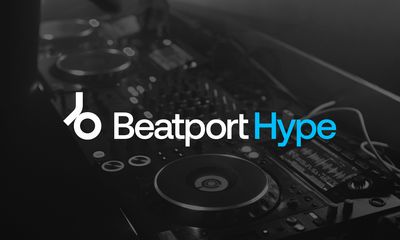Elevate your music: Expert tips on using samples
You may not know it, but sampling is pretty much everywhere in music. Samples are a small piece of recorded sound / vocal that producers often use in their music. Samples are easy to create for yourself but there are also many sites where you can get them. Thanks to the large amount of sample packs, literally every imaginable sound is available with just a few clicks.
The world of sample packs is thus huge. As more and more people produce music digitally, samples have become an important part of music production. But how exactly do you use samples for your tracks? What do you have to pay attention to in order to avoid legal problems? That's what we're going to clarify today.
How to find samples and loops
- Use Creative Commons // Creative Commons is a licensing organization that promotes the fair use of artistic works for other artists. Their search engine CCMixter is ideal for finding all kinds of sounds that can be sampled legally. Just type in what you're looking for and browse through the results.
- Use royalty-free sample packs // Sites like LANDR offer sample packs that are 100% royalty-free and legal to use in your own tracks. They are the perfect source for finding good free sounds to build a project on.
- Use paid samples sites // Like Loopcloud and Splice. There are also many other sites you can check out - you'll definitely find something suitable for your sound.
- Clarify your sample // If all else fails and you just want to use a specific sound or part from another song, you can try to clear your sample with the copyright owner. When someone writes a song, the songwriter or publisher owns the copyrights. The same goes for song recording. The recording is usually owned by the artist or their record label. To release a sample, you must get permission from the copyright owners and sign a sample contract.
Taking smart samples means doing research. So dig long and dig deep.
Smart sampling means doing thorough research. So investigate thoroughly and always make sure you know exactly who owns the rights to a work you're sampling.

How to use samples
- Use effects to manipulate your samples // The simplest and easiest creative strategy for samples is to loosen them up with effects and shape them with audio effects to make them your own.
- Overlay your samples with custom kits // Your samples don't have to stand on their own. Use them like building blocks to create something completely new.
- Time stretching in a creative way // Time-stretching is a fairly obvious approach to working with samples. The key is to find a time-stretch workflow that works for you, and the right tools that allow you to achieve what you need to stretch your samples.
There are of course many other ways to creatively use your samples and also many programs which help you to do that. In general, it’s important that even though you use samples, you still make your own sound and use samples only as an add-on.
What you should keep in mind when using samples and loops
For vocals or melodies you have to be especially careful - these have a high recognition value and hence you have to make sure that you have the rights to them. You can still publish your track on most platforms, but fingerprinting platforms such as Facebook, YouTube and various others must be excluded from the delivery. Due to the automatic detection of the audio, it can quickly lead to conflicts or rights-overlaps.
So always make sure that you have all rights from the sample you use in your tracks and exclude all platforms that work with an automatic fingerprinting system.
It’s ok to use samples
Remember that using samples doesn't have to mean simply dragging and dropping recorded sounds into a track and arranging them. Some producers believe that all the sounds you work with should come from your own hands and instruments. And that's perfectly fine! Recording your own audio with your own equipment is an incredible and rewarding process. Having said that, rejecting sampling erases an entire universe of creative tools. Sampling is useful for all producers, no matter what genre you work in.

